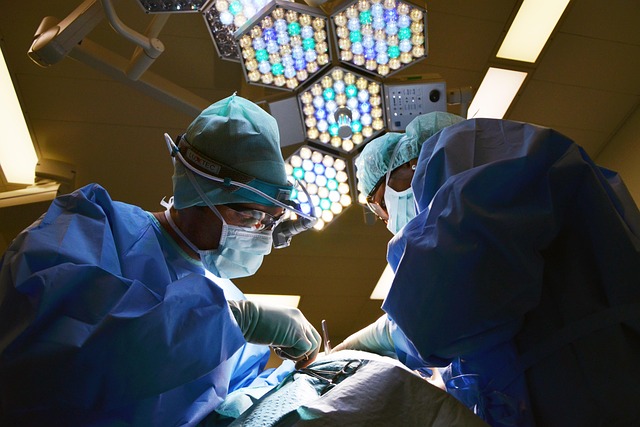Rhinoplasty options considered in the UK
Rhinoplasty offers individuals in United Kingdom an opportunity to reshape their nose to align with personal aesthetic goals. This surgical procedure has gained attention for its potential to provide satisfying results while minimizing discomfort. Exploring rhinoplasty may reveal how this option can align with personal aspirations without necessitating more invasive alternatives.

Understanding Rhinoplasty and Its Benefits for Patients in United Kingdom
Rhinoplasty involves reshaping the nose through surgical modification of bone, cartilage, and soft tissue structures. The procedure can address numerous concerns including reducing or increasing nose size, changing the angle between the nose and upper lip, narrowing nostril width, or correcting bumps and indentations on the nasal bridge.
For UK patients, rhinoplasty offers both cosmetic and medical benefits. Cosmetically, the procedure can enhance facial harmony and boost self-confidence by creating a nose that better complements individual facial features. From a medical perspective, rhinoplasty can correct breathing problems caused by structural abnormalities such as a deviated septum or enlarged turbinates.
The NHS may cover rhinoplasty costs when the procedure addresses significant functional breathing problems or corrects deformities resulting from trauma or congenital conditions. However, purely cosmetic rhinoplasty typically requires private treatment, with patients choosing from numerous qualified plastic surgeons and cosmetic clinics throughout England, Scotland, Wales, and Northern Ireland.
The Procedure Explained: What to Expect During Rhinoplasty
Rhinoplasty procedures in the UK generally follow established surgical protocols, with two primary approaches available: open rhinoplasty and closed rhinoplasty. The chosen technique depends on the complexity of changes required and surgeon preference.
During closed rhinoplasty, surgeons make incisions inside the nostrils, leaving no visible external scarring. This approach works well for minor to moderate adjustments and typically involves shorter recovery periods. Open rhinoplasty involves a small incision across the columella (the tissue between nostrils), providing surgeons with enhanced visibility and access for complex reshaping procedures.
Most rhinoplasty procedures in the UK are performed under general anaesthesia in accredited surgical facilities. The surgery typically lasts between one to three hours, depending on the extent of modifications required. Surgeons may use various techniques including cartilage grafting, bone reshaping, or tissue removal to achieve desired results.
UK patients undergo comprehensive pre-operative consultations where surgeons assess nasal structure, discuss realistic expectations, and explain potential risks. Computer imaging technology often helps patients visualise potential outcomes, though surgeons emphasise that final results may vary from digital projections.
Aftercare and Recovery: Ensuring a Smooth Healing Process
Recovery from rhinoplasty requires careful attention to post-operative instructions provided by UK surgical teams. Initial healing typically involves wearing a nasal splint for approximately one week, with internal packing removed within a few days of surgery.
Most patients experience swelling and bruising around the nose and eyes, which gradually subsides over several weeks. Cold compresses and prescribed pain medication help manage discomfort during the initial recovery phase. UK surgeons typically schedule follow-up appointments at one week, one month, three months, and one year post-surgery to monitor healing progress.
Patients should avoid strenuous activities for at least two weeks following surgery, with contact sports prohibited for several months. Sun exposure should be limited, and patients must be gentle when cleansing the facial area. Most individuals return to work within one to two weeks, though visible swelling may persist for several months.
Final rhinoplasty results become apparent approximately one year after surgery, as residual swelling completely resolves. UK patients benefit from comprehensive aftercare support, including access to their surgical team for questions and concerns throughout the recovery process.
| Provider Type | Average Cost Range | Key Features |
|---|---|---|
| Private Clinics | £4,000 - £7,000 | Comprehensive consultation, aftercare support |
| Hospital-based Surgeons | £5,000 - £8,000 | Advanced facilities, multidisciplinary team |
| Specialist Rhinoplasty Surgeons | £6,000 - £10,000 | Highly specialised expertise, revision procedures |
Prices, rates, or cost estimates mentioned in this article are based on the latest available information but may change over time. Independent research is advised before making financial decisions.
Choosing the Right Approach
Selecting appropriate rhinoplasty options involves careful consideration of individual goals, medical history, and surgeon expertise. UK patients benefit from consulting multiple qualified practitioners to compare approaches and ensure compatibility with chosen surgical teams.
Research reveals that successful rhinoplasty outcomes depend heavily on surgeon experience, patient communication, and realistic expectation setting. Many UK providers offer virtual consultations, making initial assessments more accessible for patients across different regions.
The decision between NHS and private treatment depends on medical necessity and individual circumstances. Patients seeking purely cosmetic improvements typically pursue private treatment, while those with documented breathing difficulties may qualify for NHS funding following proper medical assessment.
Rhinoplasty represents a significant decision requiring thorough research and careful consideration. UK patients have access to highly qualified surgeons and comprehensive care options, whether through private practice or NHS services. Understanding available approaches, realistic recovery expectations, and associated costs enables informed decision-making for this potentially life-changing procedure.
This article is for informational purposes only and should not be considered medical advice. Please consult a qualified healthcare professional for personalized guidance and treatment.




